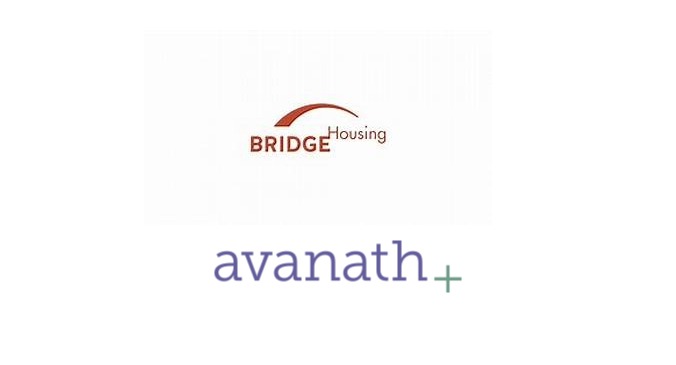President Biden, Vice-President Harris and their Department of Justice have come out strongly against RealPage for their algorithm designed to help landlords better understand current market conditions in setting their rents.
They claim it enables landlords to form a conspiracy against tenants to raise rents, which violates antitrust law. As DOJ’s Assistant AG for antitrust Jonathan Kantor put it, “The modern machinery of algorithms and AI can be even more effective than the smoke-filled rooms of the past.” The DOJ has sued RealPage, seeking to “end RealPage’s illegal conduct and restore competition for the benefit of renters.”
The attacks have been strident and misleading enough that RealPage prepared an extensive public defense (which this article has drawn upon).
Shrinkflation: An inconvenient truth
One good illustration of the current administration’s propensity of finger-pointing is their recent demonization of manufacturers who turned, in part, to “shrinkflation”—downsizing product size or quantity to hold down price increases—in response to consumer prices increasing by nearly 20 percent since January 2021. This, while the Bureau of Labor Statistics concluded that “while consumers may notice shrinkflation at the grocery store, it has a very small impact on the overall inflation picture they face.” It was a clear ploy to distract from policy makers’ responsibility for creating rapid inflation.
Monetary policy was incredibly expansionary, including an 80 percent increase in Fed holdings of financial assets between February 2020 and February 2021 alone. Fiscal policy has also been profligate, with budget deficits totaling over $5.9 trillion for fiscal 2020 and 2021, and with the deficit this past fiscal year at $1.8 trillion.
Then there is the heavy hand of government in the housing market, from zoning restrictions, costly impact fees, building codes, high property taxes, energy efficiency standards, excessive permitting fees, as well as rent control in many areas.
The cumulative effect of those policies on housing costs has been large. For example, according to CBS News, “Rents jumped 30.4 percent nationwide between 2019 and 2023.” That is why landlords and tools to help them more quickly discover what rental prices might better reflect market realities are among the “high value targets” for such scapegoating.
Covering the tracks of bad policy
Given the large chunk of budgets housing makes up, that provides a focal point for voter frustrations against the current administration, which they want to redirect. Hence the all-hands-on-deck blame-a-thon against RealPage.
It is easy for those in government to throw around accusations that someone behaved “collusively,” thereby violating antitrust law. But there is a big gap between such accusations and proof of harm that violate antitrust laws.
In the 1940 landmark Socony-Vacuum ruling, the Supreme Court determined that a direct agreement between parties is necessary for a violation of the Sherman Act. But there is no such agreement in the RealPage case. If we are to maintain long-held precedent, this case doesn’t qualify, despite proponents’ verbal contortions to pretend it does.
In fact, in contrast to the claim that RealPage is acting as the coordinator of landlords’ collusive efforts, to the extent its software incorporates nonpublic information (which it does not use in recommending whether a landlord should raise, lower, or hold fast its rent), it does so in an anonymized way to prevent communicating any particular competitor’s information. This would make what they are accused of doing all but impossible.
Along the same lines, as RealPage said in 2017, “when the DOJ granted antitrust clearance for [an acquisition], the DOJ also analyzed extensive information about our revenue management products without objecting to them in any way.” If such an operation was not objectionable then, it is inconsistent with it being highly objectionable now.
Market lag and its impact
In addition, proof of a conspiracy to raise prices would require proof that the behavior in question caused prices to rise, rather than something else. But here, that something else is the combination of policies driving up the demand for housing while driving down its supply. However, the effect on rents operates with a lag.
That is because rental contracts are frequently only renewed annually, which can miss sharply changing market conditions for a substantial period of time.
In addition, small landlords often keep rents below market rates to avoid losing “good” tenants (because the costs of dealing with bad tenants can be very large). So when government policy changes produce very large “surprise” upward pressures in the rental market, market rents often lag behind what the new market conditions justify.
During such a situation, RealPage’s tools can accelerate that adjustment. But it is a faster adjustment toward the new market equilibrium (Which RealPage describes as “recommending rents that will cause a property’s vacant units to be filled at competitive prices”), not a monopolistic conspiracy. And those tools do not necessarily raise prices; they also act to hasten rent reductions in housing downturns.
In fact, DOJ admits that RealPage does what landlords already do—search for insight into current market conditions and future prospects. RealPage just does that more thoroughly and accurately. Since acquiring more accurate information about the complex determinants of the terms in the rental market is quite valuable, doing that better is an odd thing to go after.
Realpage, one of many
There is also the fact that similar algorithms are in wide use elsewhere, from search engines to airlines to hotels to supermarkets to restaurants, among many other examples. That raises the question of why, if such algorithms are valuable and accepted in so many places, it should be unacceptable in the rental housing market?
Before taking his slot at DOJ, Jonathan Kanter and his co-authors recognized that “there are many consumer benefits stemming from the use of algorithm-based software, including for pricing.”
That raises a further issue as well. If RealPage collects information on about 16 million of the roughly 50 million rental units in the U.S. (32 percent), but only 3 million units (6 percent) employ its tools, that does not represent enough market power for it to enable effective collusion, especially given that there is a wide variance in users’ acceptance of its pricing suggestions.
It is common to charge less than the suggested terms (perhaps because of different interpretations of data or upcoming trends or long-run considerations). But charging less than “agreed” prices, or “cheating,” is a primary means that undermines attempted conspiracies. So why should we believe that RealPage is the center of a highly effective and socially harmful conspiracy, even though everyone is free to cheat?
Since the textbook discussion of business conspiracies shows they raise prices by restricting output, shouldn’t the government also furnish solid proof of increasing vacancy rates where RealPage has larger market penetration?
In fact, RealPage asserts that its software doesn’t ever suggest keeping an apartment off the market, and that “properties using our revenue management products consistently achieve vacancy rates below the national average.”
Update: Criminal investigation of RealPage dropped, Dec. 8, 2024















